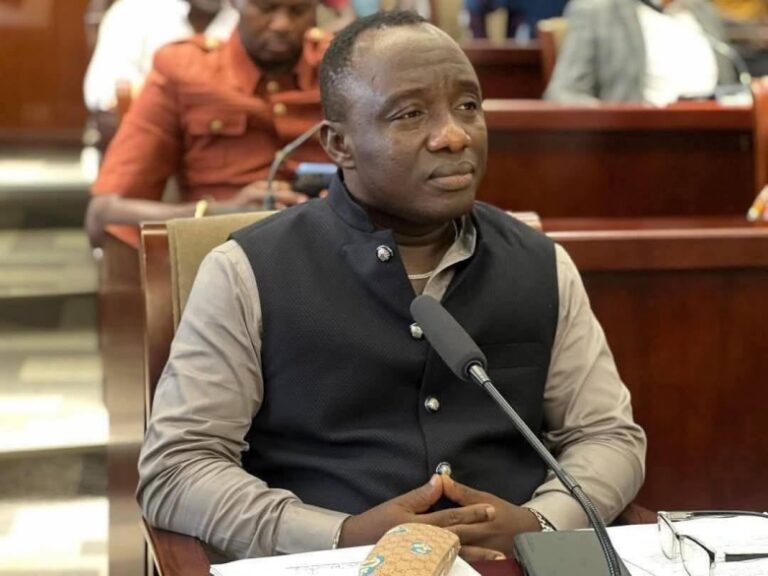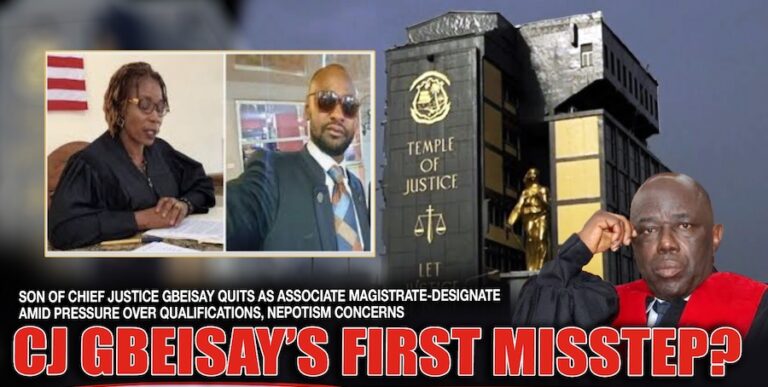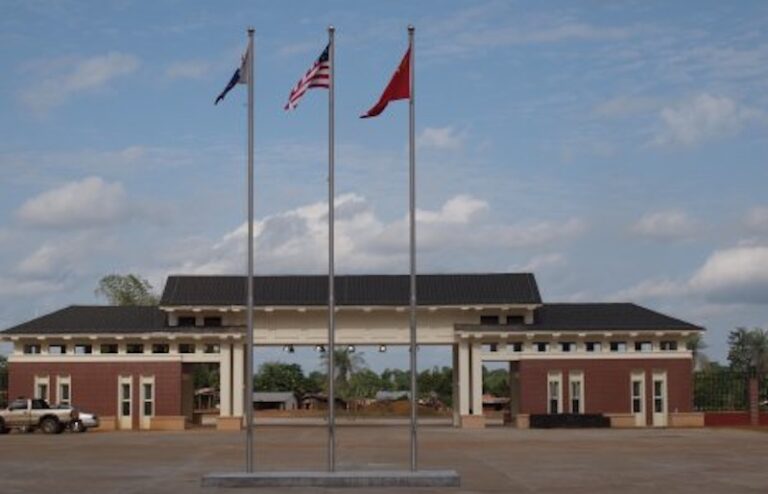
By Ansu O. Dualu
National transformation cannot be supported entirely by government with a dwindling natural resource revenue that puts the government into a position where it always capitulates at every negotiation table. An expansionary, private sector strategy must be developed and implemented to strengthen the government’s position and hasten the process towards modernity! Public administration should be designed almost exclusively as a regulatory machine with economic engines that promote growth, encourage innovation and nurture a sustainable agenda that is vital for long-term national prosperity.
The government’s role in all of this is to serve as a referee that designs national policies, enhances regulation and employs measures that lift and protect the interests of the people. The private sector possesses the financial instruments to ensure all of this becomes an economic reality.
The stagnation of Liberia continues to persist because our revenue collection methods are not on par with national demands. Some will insist that it is more so because of how the national budget is allocated! Forget the argument about corruption and know that a robust private sector strategy can heavily influence national decisions, change this debauched orientation, while simultaneously strengthening public policy decisions. See the private sector as the tool that makes the government work and gives administrators the leverage that puts the government in a better negotiating position!
Attaining national success requires administrators to navigate a complex confluence of economic issues – be it geo-political, regional collaborations, public policy alignment, or concession negotiations; the free market can be used as a compass to guide our way through this maze. The private sector can become a powerful tool if Liberia capitalizes on the ingenuity and opportunities it presents.
Note that private enterprise is the surest proof way to national success. The essential needs of society to include social welfare programs, effective public services, a stable economy, secured jobs, quality education, and any other public service crucial for national success must be engineered first by the private sector and expanded by public utilization. In essence, for the public sector to be all it can be, the private sector must be large and vibrant enough to support the adventures of government.
Consequently, why has Liberia not recognized this for some 180 years? Is this deliberate? What can we do to change this? An economy captures the value of the goods and services it provides – those provision should create opportunities for employment, including policy-driven direct investment strategy that creates economic opportunities to improve the standard of living in our society.
Governments do not normally innovate or drive economic growth simply by making policy decisions or passing legislations; this effort is typically driven by a focus on profit, new strategies to outperform the competition and a move for higher production pushed by technological advances that create efficiencies and develop new opportunities in a capital market system. This is the nature of private enterprise – it is the engine that drives economic evolution, forcing a society to develop.
If a country intends to develop, it must heavily promote investment in private institutions and allow the profit-seeking forces of the capital market to expand that economy! Equally so, if government policy decisions are not geared towards investments in the capital market, it is by default countering growth and directly stagnating the potential of that market.
Liberia’s economic potentials are tied up in our refusal to do the obvious: design our national policies in a way that puts money where money grows, not where it disappears! To grow our national budget and expand the economy, we must design a national private sector strategy that aligns with our overall developmental agenda, something Liberia has not done for at least 10 successive administrations!
Moreover, to build a modern infrastructure, get access to quality education, health, efficient government operations, an effective public structure must tie in with private partnership aim to secure an economy that is maintained by its brightest minds and an ever-growing private capital. Government cannot grow a stable economy that creates jobs in the absence of a vibrant free market system. The public sector is limited; the open market is unlimited. Bet your money on unlimited possibilities and grow your revenue far beyond national expenditure.
Furthermore, innovation should drive our private sector strategy. Policymakers must be clear about their intentions on the economy, what they plan to achieve over a given period and how these expectations are going to be measured. There must be clearly delineated indicators, with a timeframe, target, and the economic impact expected. This must be tracked by experts with clear deliverables.
Create quarterly reports for tracking mechanisms to document the process and seal the leakages. The goal here is to build a robust system that is designed to withstand any scenario and ultimately serve for the greater good of the people in the long-term.
What will a private sector strategy look like? Better yet, how do we design a strategy that is tailored to our environment while at the same time achieving the developmental aspirations of our people? To begin designing the national private sector strategy, we must first indigenize our approaches in close consultation with our people, recognizing that what works in Boston may not necessarily work in Buchanan.
Liberia’s strategic considerations must factor in the following:
- Create five economic zones: 1. Western Region comprising of (Lofa, Gbarpolu Grand Cape Mount & Bomi), 2. Capital Region containing (Montserrado & Margibi), 3. Central-Northern Region constituting (Bong and Nimba), 4. Coastal Region including (Grand Bassa, Rivercess, & Sinoe), 5. Southeastern Region capturing (Grand Gedeh, River Gee, Grand Kru and Maryland). The intention here is to create regional synergy where local hubs produce certain commodities/services for national economic expansion. Groom local expertise in these regions and ensure they champion the local agenda. Tie their identities and livelihood to what they produce, not forgetting to indigenize your strategy to what that region can produce and what it has in abundance. Heavily localize your job creation strategy in these regions and ensure these locations have the capacity to function independently but are flexible enough to be integrated across the board.
- National economic expansionary policies should be intricately linked to regional aspirations. Public-private partnership must give rise to a broader vision that supports national revitalization. Regional integration strategy should be designed to boost national economic growth and local job creation prospects; this will ultimately hasten the process towards decentralization and begin the march towards industrialization.
- Connect businesses in these hubs and promote trade that benefits entrepreneurs across various regions. Consequently, make sure local people control what is happening in their backyard. For a society to sustain its growth, the citizens of that country must be the direct beneficiaries and the new millionaires and architects of that economy. Guard the potential of your entrepreneurs jealously and give your people all the necessary tools to succeed because national success is heavily dependent on local economic expansion.
- The Liberian Diaspora is your biggest asset in this push for economic revitalization (Read: “Why Liberian Diaspora Matter”), heavily leverage this position by doing the following: a) Give them full consideration and entice the diaspora to invest in the country through government austerity measures; b) Grant the diaspora voting rights from abroad but levy an annual maintenance fees for those privileges – use this money directly for capital investment or private sector expansion, c) Built a dedicated neighborhood that meets the standards Liberian Diaspora has gotten used to, incentivize them to come home to teach, serve as managers, professor, nurses, etc. in this new growth strategy. The intent here is to reverse the brain drain, improve the human capital in the country and redefine the way we do business. See the diaspora as an invaluable partner with unlimited access to much needed resources – they have some $20B capitalization each year!
- There is no way to overemphasize the importance of external private capital; develop an entire government agency with the singular task to source capital on the open international market for direct investments.
- Economic growth and innovation must be the foundation for the private sector revitalization strategy. The focal point in all of this must be to increase productivity and by default the national tax base. Understand that reliable regulatory institutions are crucial in this collaboration between government and the private sector. The leadership on both sides must be compelled to hold themselves up to the highest ethical standards to achieve the desired results. Run a meritocracy that rewards outcome and excellence. Cut off those who see the old corrupt ways as the only means of livelihood because our national survival depends on not having a corrupt system.
It is worth noting that the private sector is not a panacea for all our social, economic or political problems; however, it does provide opportunities for massive employment across the country, forcing the government to improve its service provision standards, challenges entrenched corrupt behaviors by introducing better ways of doing business. Additionally, the private sector sets new standards that force the public to behave and think differently.
As Liberia improves its service provision standards and change minds and attitudes, the people will begin to redefine a new culture about business across the board. The intention here is to reorient the thinking in the country – from the normalization of mediocrity and negative production to a transition and celebration of meritocracy and excellence!
Know that strong and accountable governing institutions are essential for the growth of a vibrant free market system. In the context of Liberia, it is nearly impossible to build any institution given that a corrupt structure controls everything and fights to keep the system this way.
The private sector’s role is to push a new narrative and strategically bend the system to its will through targeted calculations: 1) Build a culture that makes production and excellence the new standard – this must include a fair legal system, a transparent government and a culture the respects the rule of law; 2) Be an important player in training the new generation and feed the leadership pipeline that makes responsible government possible; 3) Reward and promote architects of this new approach of responsible stewardship – ostracize and heavily consequence those who insist on maintaining the old corrupt system that has kept this country backward for some 200 years; 4) Position your chosen few to take over national leadership and standardize this new level of thinking that rewards diligence, prudence, excellence and production.
.
Moreover, foster a healthy environment that protects natural resources, reduce pollution while at the same time finding a way to sustain production. Do not think about the private sector as being entirely separate from government – see this sector as the national growth driver that innovates to sustain government operations. The public and private sectors are inseparable; one must complement the other – your austerity measures must push to strengthen this alliance.
Job creation should be the centerpiece in this makeup of an organized public-private partnership that serves as the catalyst of growth. Liberia will not grow in the absence of fiscal considerations that intentionally support a broader market system which overwhelmingly benefit the people. The Liberian government must make deliberate calculations to ensure growth happens – like a baby, the private sector must be birthed, fed, strengthened with supportive fiscal and monetary policy vitamins to get it to a level where it can stand on its own and become the sustaining giant of national economic revitalization! Only government support can speedily initial this. The argument here is simple: For the Liberian Government to put itself in a superior economic position and actualize its vision, it must groom the private sector to supply the resources that will keep the government running in the interest of the people.
____________________________________________________
About the Author: Mr. Dualu is the author of countless articles to include “A Simple Economic Guide to Fix Liberia”, “Leveraging Liberia’s Resources to Lift the Pro-Poor Agenda” The author currently works as a financial professional out of Massachusetts
.













